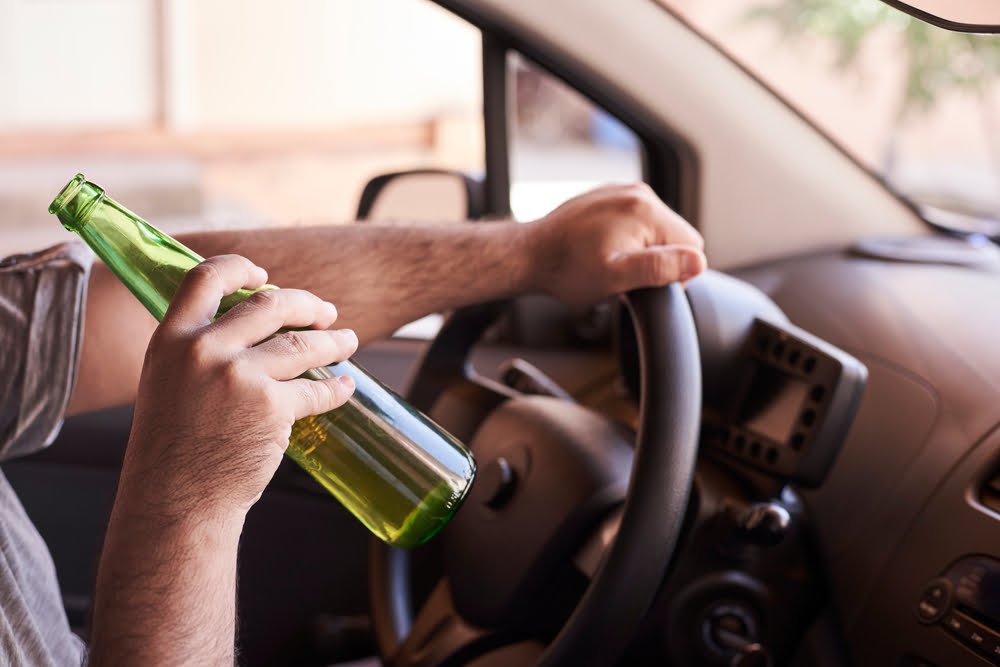At least 4000 deaths could be prevented in the European Union every year if drunk driving were banned.
The European Transport Safety Council (ETSC) is calling on European governments to increase the number of drink-driving checks and simplify the procedures for their implementation, as new figures have shown that the percentage of drivers exceeding the limit has returned to the level of the past. pandemic levels in many European countries.
At least 4000 deaths could be avoided in the European Union every year if drunk driving were banned. ETSC says widespread, highly visible and well publicized enforcement and the perception of being controlled are critical to effectively reducing alcohol-related road accidents.
But data analyzed by ETSC shows that the number of checks has decreased significantly in many countries during the Covid-19 pandemic. And while some are now ramping up the number of checks again, this is not happening fast enough. The percentage of drivers exceeding the limit has returned to pre-pandemic levels in many countries.
Over the past decade, the number of drunk driving checks per capita has fallen in ten countries and increased in only six. It is worrying that fourteen countries monitored by ETSC do not even collect national data on the number of alcohol tests performed, including Belgium, Bulgaria, Switzerland, the Czech Republic, Germany, Denmark, Hungary, Israel, Luxembourg, Latvia, Malta, the Netherlands, Slovakia and Serbia.

In addition to increasing and monitoring the number of drink-driving checks, ETSC says national governments should ensure that tests can always be conducted randomly and without the police being the first to suspect drink-driving. The organization of the road safety campaign is also calling on all countries to follow the model in Norway, where so-called 'evidence' breathalyzers can be used by police at the roadside. Many countries still require follow-up blood tests at a police station or hospital, draining police and medical resources and greatly reducing enforcement checks.
According to ETSC, financial sanctions can also be more effective if they are linked to income. The report cites the example of Denmark where fines for drunk driving are linked to a multiplier of the driver's blood alcohol concentration (BAC) and monthly income.
Several countries, including Lithuania and Poland, require some high-level repeat offenders and first offenders to install a breathalyzer device (an alcolock) in their vehicle that requires the driver to be sober to start the engine.
Alcolock-based rehabilitation programs can help drivers continue productive lives and keep their jobs because they can continue to drive safely as long as they use the alcolock. Simple driving bans can be ineffective because many repeat offenders simply ignore them and drive anyway, with nothing to stop them from driving under the influence.
Current EU driving license legislation prohibits issuing driving licenses to people who are addicted to alcohol. Many people who are dependent on alcohol could benefit from a driver's license that restricts driving to interlocked vehicles. But this is currently not allowed. ETSC calls for the restriction to be lifted when the EU Driving License Directive is updated next year.
“Now that the Covid lockdowns are behind us, we hoped road safety would continue to be higher. But the opposite is happening, the number of road deaths is increasing and the number of drunk driving deaths is also rising. Reducing drunk driving is not difficult or complicated. Tried and tested methods of enforcement work wonders, but you have to invest police resources in them. It is also very important to stop wasting precious police time on follow-up blood tests when the technology is already there to perform highly accurate, evidential roadside breath tests.”
Antonio Avenoso, Executive Director of the European Transport Safety Council.
Photo above: Karolis Kavolelis/Shutterstock.com



